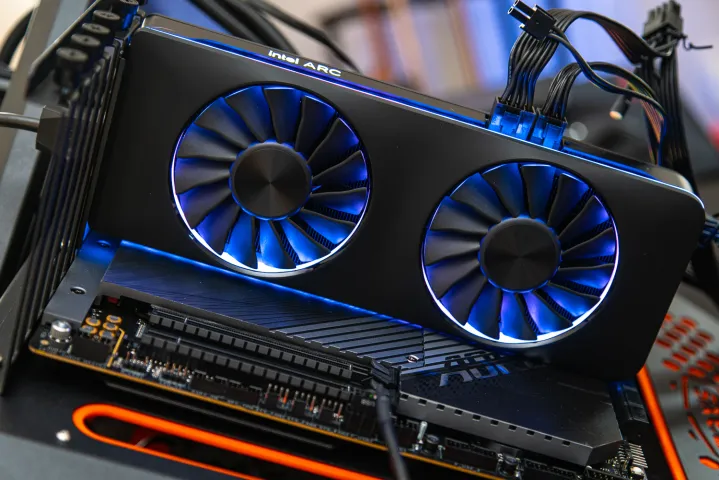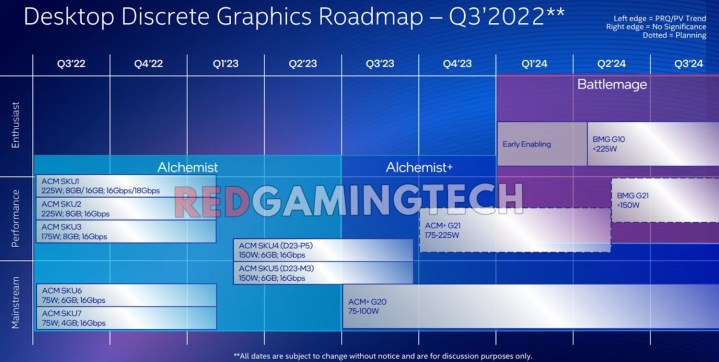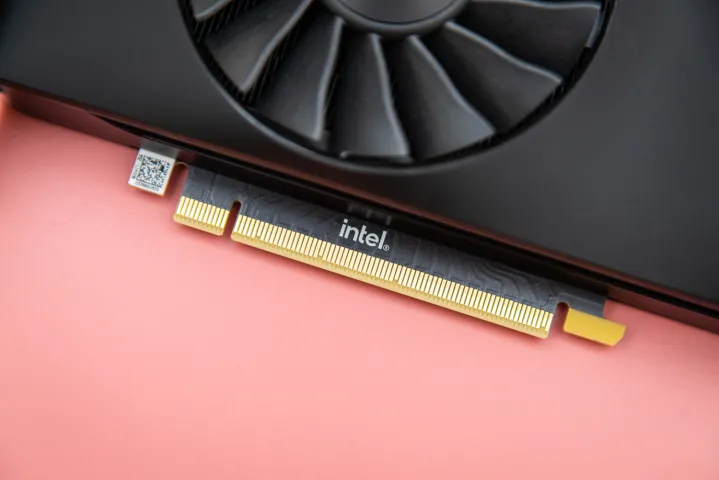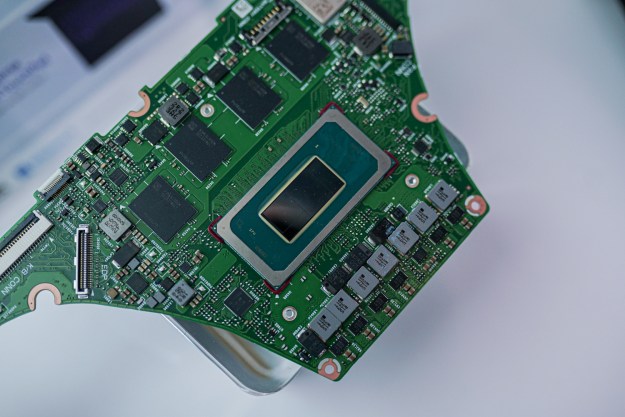
When Intel’s first-gen GPUs launched, their performance had some serious weaknesses. Intel acknowledged this before the launch of the GPUs, promising that it would improve performance through driver updates in the future. It’s Intel’s take on AMD’s classic “fine wine” approach to GPU drivers that we’ve seen in the past.
And that’s exactly what it did. It seems like every week Intel has been making headlines with massive performance improvements in individual games. But the big payoff from these drivers isn’t just for the Arc A770 and A750. These big driver boosts are laying a foundation for Intel’s next-gen Battlemage GPUs, and they could make all the difference.
Starting from the bottom

As mentioned, performance was a big problem at launch for these first Intel cards, but they also came with a slew of software issues. Despite offering competitive performance in newer games, the Arc A750 and A770 were a sobering reminder for early adopters of just how stable the software from Nvidia and AMD truly is.
Down but not out, Intel went to work on its drivers, and the Arc A750 and A770 have silently become excellent GPUs in the process. DirectX 9 performance is now up to par, and in games like Cyberpunk 2077 and Horizon Zero Dawn, the GPUs can finally compete with cards like the RTX 3060 Ti. There’s also the slew of updates targeted at games like Halo: The Master Chief Collection and Deus Ex: Human Revolution.
That work has continued, even as the Arc A770 and A750 start to age. Beating the RTX 3060 Ti is an accomplishment, but it doesn’t matter much when cards like the RTX 4060 offer better performance and better features at a lower price. Intel’s work to improve performance through drivers still matters, though, if not for the Arc A770 and A750, then for next-gen Battlemage GPUs.

Intel revealed four GPU generations when it announced its first-gen Arc GPUs (code-named Alchemist at the time). The next generation in the lineup is Battlemage, which will reportedly launch early next year. We don’t know much about Battlemage right now, but Intel’s foundational work on drivers could make them a big deal.
All-in on Battlemage

AMD and Nvidia have all but abandoned GPUs below $300. AMD has its RX 7600 at $270, but even Nvidia’s lowest-end RTX 4060 comes in at $300. Given what we’ve seen with GPU prices over the past year, that doesn’t seem to be changing. Meanwhile, Intel has committed itself to the budget end of the GPU spectrum, with the Arc A770 at around $300 and the A750 as low as $220.
The problem, up to this point, has just been Intel’s drivers. We’ve seen a lot of boosts in performance, but it’s hard to justify going with an Intel GPU, even if you save a little bit of money, when some games still inexplicably show performance problems. The fact that Intel delivered a 750% improvement in Halo: The Master Chief Collection just last week is a testament to the fact that there are still fires Intel needs to put out in its drivers.
The hope is that Intel can put out enough of those fires by the time Battlemage is ready. For the past year, it may have been hard to trust Intel to continue fixing issues with certain games through drivers, but the track record of the company is strengthening. And once Battlemage is here, there’s a good chance Intel will have its drivers finally figured out. In the context of the A750 and A770, the driver improvements don’t seem like such a big deal. In the context of Battlemage, however, they make all the difference.

That’s an exciting prospect for budget-minded gamers whose options have been few and far between over the past several years. If Battlemage can launch relatively free of driver-related bugs, it might be enough to force Nvidia and AMD to reconsider gamers on a strict budget. It’s not an insignificant threat, either. In just half a year on the market, Intel was able to capture 4% of the GPU market, according to Jon Peddie Research. That’s a third of what AMD holds, and that was despite all of the games that still showed performance problems on Arc.
As for what we can expect out of Battlemage, it’s hard to say. It seems clear that Intel will continue focusing on PC gamers on a budget rather than competing with flagships like the AMD RX 7900 XTX or Nvidia RTX 4090. Current rumors say that Intel is prepping a higher-end Battlemage GPU that could compete with Nvidia’s RTX 4070 Ti, but even if that’s true, it’s hard to imagine a single flagship will replace more cost-effective options.
From the beginning, it was clear that Intel had price and performance in modern games nailed with its Arc GPUs — it was just the drivers holding the cards back. With Battlemage looming on the horizon, Intel may finally have a real shot at delivering the type of budget GPU that Nvidia and AMD have mostly ignored.
And once they’re here, Intel’s work on Arc will hopefully continue. Intel’s Tom Petersen told Digital Trends that the company understands how important that is: “It is well understood within our organization that, you know, driver updates are what’s going to make the difference between our success and lack of success.”
Editors' Recommendations
- Intel’s next-gen desktop chips may embrace these two major changes
- Intel Core i9 CPUs are about to get hit with a downgrade, report says
- What to do if your Intel CPU keeps crashing
- Razer’s most boring product is also one of its best
- No, Intel isn’t blaming motherboard makers for instability issues




